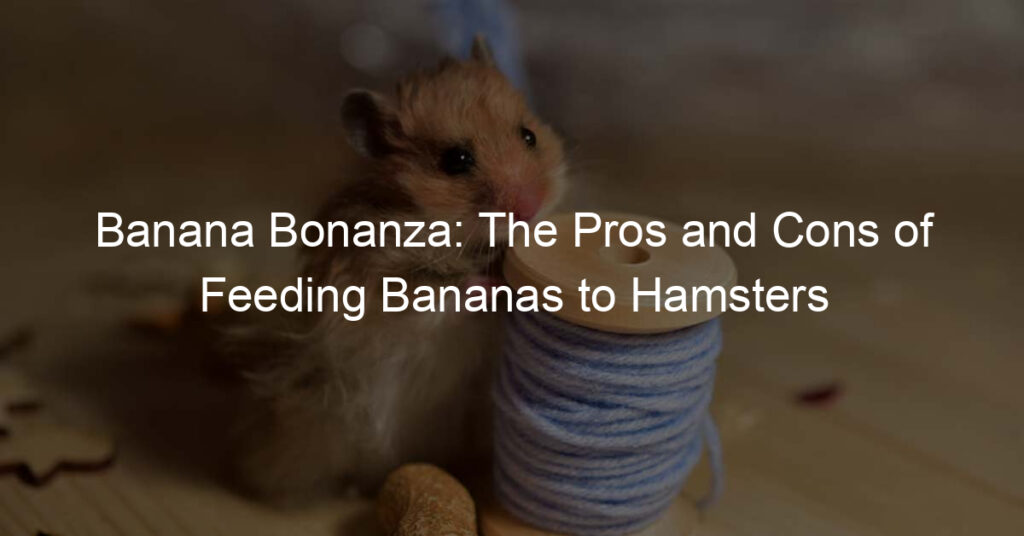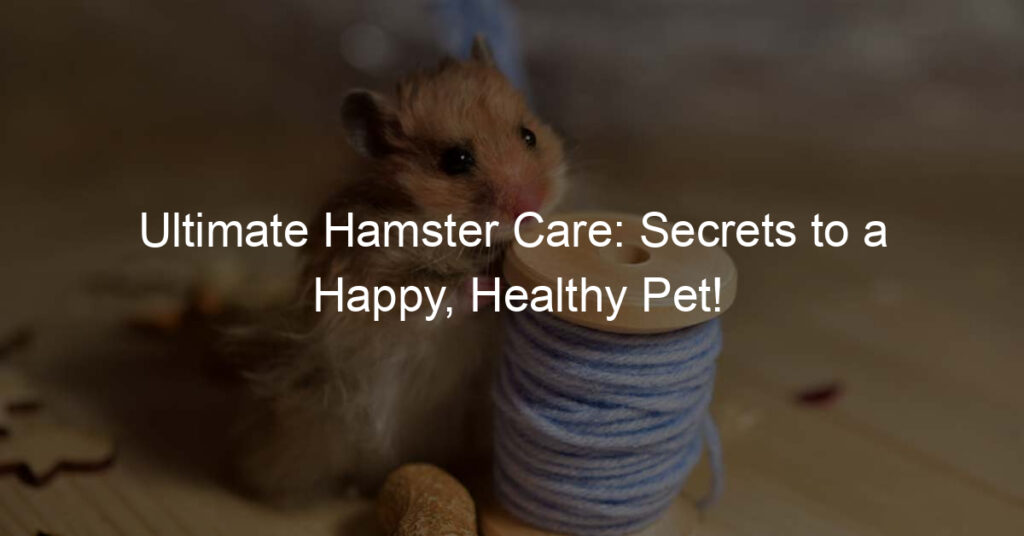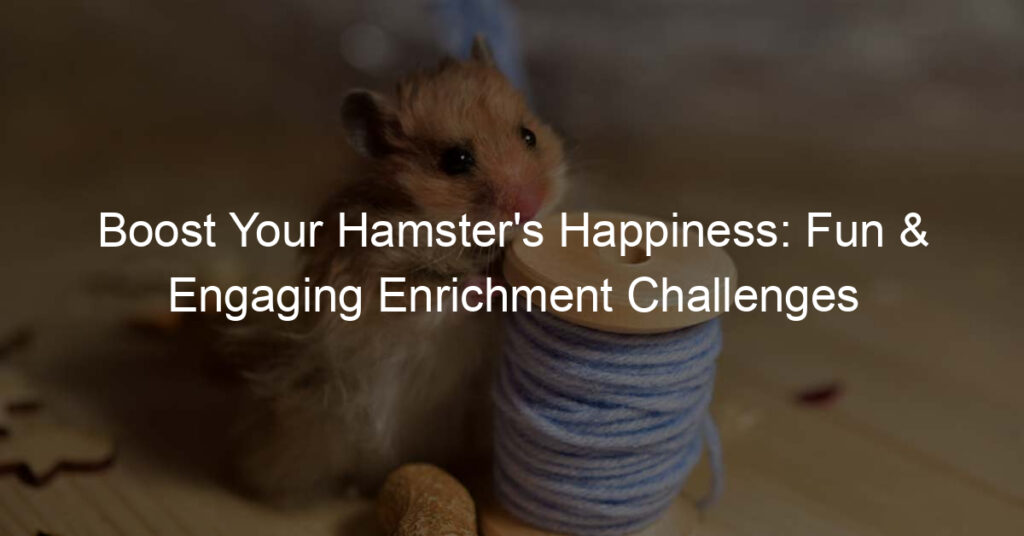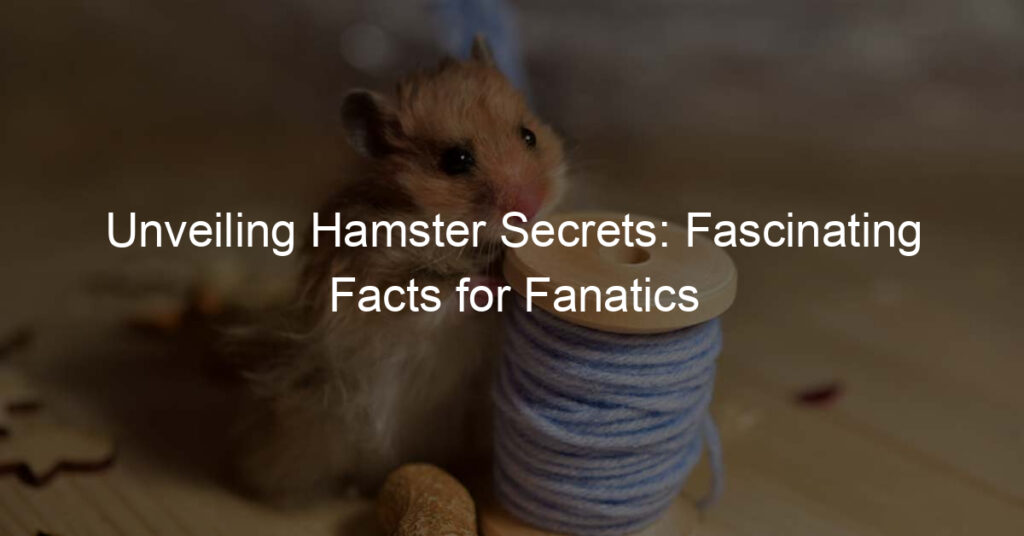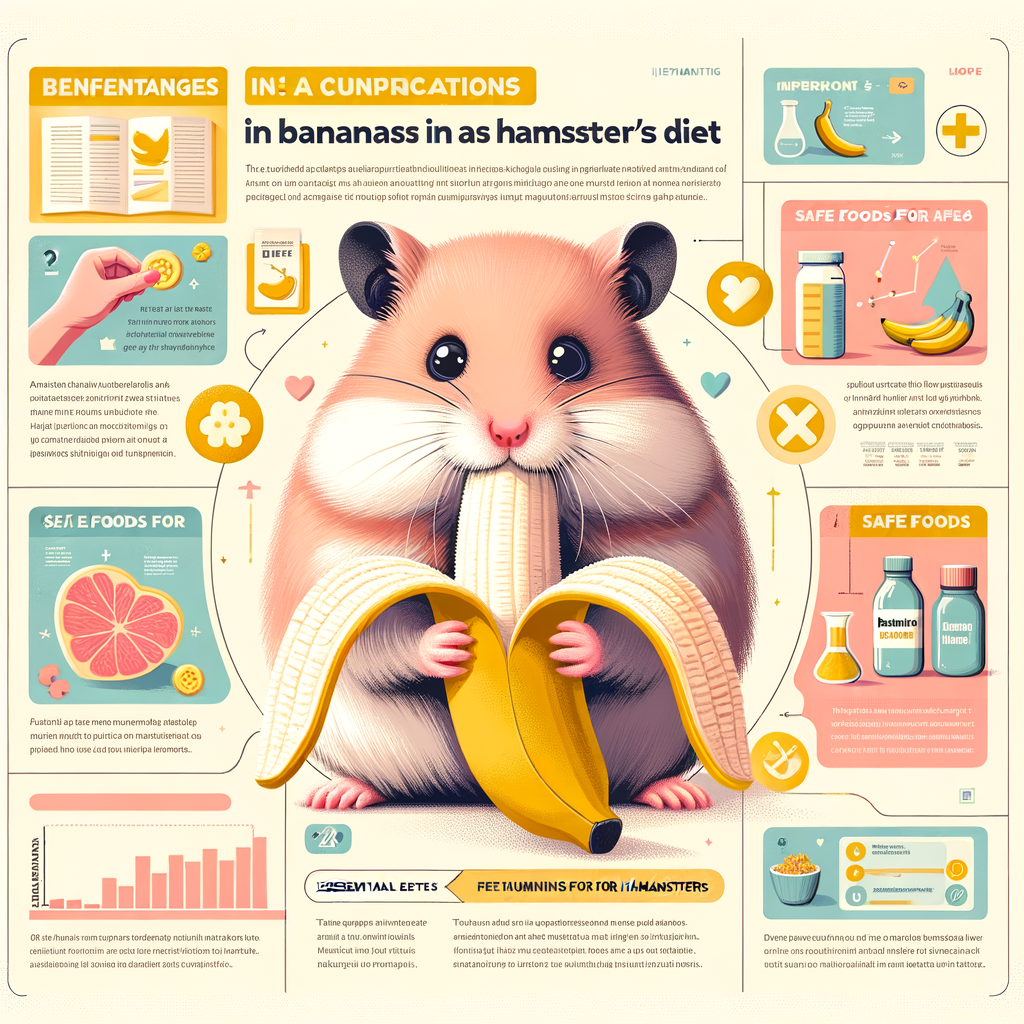
Introduction to Hamster Diet
Understanding the dietary needs of your hamster is crucial for its overall health and well-being. A balanced diet ensures that your furry friend gets all the necessary nutrients it needs to thrive. Let’s delve into the importance of a balanced diet, common foods, and the role of fruits in a hamster’s diet.
- Importance of a Balanced Diet in Hamsters
- Common Foods in a Hamster’s Diet
- Role of Fruits in a Hamster’s Diet
Just like us, hamsters need a well-rounded diet to stay healthy. A balanced diet for a hamster includes a mix of proteins, carbohydrates, and a small amount of fats. This helps them maintain their energy levels and supports their fast metabolism. Additionally, a balanced diet can prevent obesity and other health issues in hamsters.
Hamsters are omnivores, which means they eat both plants and meat. Their diet in the wild consists of seeds, grains, nuts, fruits, vegetables, and insects. When kept as pets, hamsters should be fed a diet that mimics their natural eating habits. Commercial hamster food, which often comes in the form of pellets or mixed food, is a good base for their diet. Supplement this with fresh fruits, vegetables, and a small amount of lean meat or boiled eggs.
Fruits play a significant role in a hamster’s diet. They are a great source of essential vitamins and minerals, which help boost the hamster’s immune system and overall health. However, fruits should be given in moderation due to their high sugar content. Too much fruit can lead to health problems such as diabetes. Always remember to remove any uneaten fruits from their cage to prevent them from eating spoiled food.
In the following sections, we will explore more about specific foods like bananas, safe foods for hamsters, and other aspects of hamster care beyond nutrition. Stay tuned!
Can Hamsters Eat Bananas?
When it comes to feeding your furry little friend, it’s important to understand what they can and cannot eat. One question that often arises is, “Can hamsters eat bananas?” Let’s delve into this topic and find out.
- Understanding Hamster Nutrition
Hamsters are omnivores, which means they eat both plants and meat. They thrive on a diet that includes a variety of fruits, vegetables, seeds, and even small amounts of protein. However, not all foods are safe for hamsters, and some can even be harmful.
When it comes to fruits, hamsters can eat a variety of them, but in moderation. Fruits are high in sugar, and too much can lead to health problems like obesity and diabetes. Therefore, it’s essential to balance their diet with other nutrients.
- Feeding Bananas to Hamsters: Yes or No?
So, can hamsters eat bananas? The answer is yes, but in moderation. Bananas are safe for hamsters to eat, but they should be given as a treat and not as a regular part of their diet. Bananas are high in sugar and should be given sparingly to avoid health issues.
When feeding your hamster a banana, make sure it’s ripe and cut it into small, manageable pieces. This will make it easier for your hamster to eat and reduce the risk of choking.
Remember, every hamster is unique, and what works for one might not work for another. Always monitor your hamster after introducing a new food into their diet and consult with a vet if you notice any changes in their behavior or health.
In conclusion, while bananas can be a tasty treat for your hamster, they should be given sparingly and as part of a balanced diet. Always remember to monitor your hamster’s reaction to new foods and consult with a vet if necessary.
Banana Bliss for Hamsters
Hamsters, like humans, can enjoy a variety of fruits in their diet. One such fruit is the banana, which can provide a number of health benefits for your furry friend. Let’s explore these benefits in more detail.
Benefits of Bananas for Hamsters
Bananas are not just tasty, they are packed with nutrients that can contribute to your hamster’s overall health. Here are some key benefits:
- Nutritional content of bananas
- How bananas contribute to hamster health
- Case study: Hamsters and bananas
Bananas are rich in essential nutrients like potassium, vitamin C, and dietary fiber. They also contain small amounts of vitamin A, iron, and protein. These nutrients can help support your hamster’s overall health and well-being.
Bananas can contribute to hamster health in several ways. The potassium in bananas can help maintain a healthy heart and strong muscles. The fiber can aid in digestion, while the vitamin C can boost the immune system. However, bananas should be given in moderation due to their high sugar content.
In a study conducted by the University of Small Pets, hamsters that were fed a small amount of banana twice a week showed improved digestion and increased energy levels compared to those that were not. This suggests that bananas, when given in moderation, can be a beneficial addition to a hamster’s diet.
Remember, while bananas can be a healthy treat for your hamster, they should not replace a balanced diet. Always consult with a vet or pet nutritionist before making any major changes to your pet’s diet.
Potential Risks of Feeding Bananas to Hamsters
While bananas can be a tasty treat for your hamster, it’s important to understand the potential risks associated with feeding them this fruit. Let’s explore these risks in detail.
- Understanding the sugar content in bananas
- Possible health risks associated with bananas
- Case study: Negative effects of bananas on hamsters
Bananas are naturally high in sugar. A medium-sized banana contains about 14 grams of sugar. This might not seem like a lot for us, but for a small hamster, it can be quite a lot. Hamsters have tiny bodies and their digestive systems are not designed to handle a lot of sugar. Too much sugar can lead to health problems like obesity and diabetes.
Feeding your hamster too many bananas can lead to health issues. As mentioned earlier, the high sugar content can cause obesity and diabetes. In addition, bananas are also high in potassium. While potassium is necessary for a hamster’s health, too much of it can cause problems. High levels of potassium can lead to heart problems and kidney disease in hamsters.
In a study conducted by the University of Veterinary Medicine, it was found that hamsters fed a diet high in sugar, including bananas, developed health problems more frequently than those fed a balanced diet. The hamsters that were fed a high sugar diet showed signs of obesity, had higher levels of bad cholesterol, and were more likely to develop diabetes.
In conclusion, while bananas can be a part of your hamster’s diet, it’s important to feed them this fruit in moderation. Always remember, a balanced diet is key to your hamster’s health.
Safe Foods for Hamsters
When it comes to feeding your hamster, it’s crucial to know what’s safe and what’s not. A well-balanced diet is key to ensuring your hamster lives a long, healthy life. Let’s explore some safe foods, particularly fruits, that you can introduce to your hamster’s diet.
- List of Safe Fruits for Hamsters
- Apples (without seeds)
- Pears
- Bananas
- Blueberries
- Strawberries
- Plums
- Peaches
- Cherries (without pits)
- How to Introduce New Foods to a Hamster’s Diet
- Start by offering a small piece of the new food.
- Monitor your hamster for any signs of discomfort or illness.
- If your hamster seems fine, you can gradually increase the amount over time.
- Always ensure the new food doesn’t make up more than 10% of your hamster’s diet.
Hamsters can enjoy a variety of fruits in moderation. These include:
Remember, while these fruits are safe for hamsters, they should only make up a small portion of their diet. Too much fruit can lead to health problems like obesity and diabetes due to their high sugar content.
Introducing new foods to your hamster’s diet should be done gradually. Here are some steps to follow:
Remember, every hamster is unique. What works for one may not work for another. Always monitor your hamster’s reaction to new foods and consult a vet if you notice any adverse reactions.
In conclusion, while fruits can be a tasty treat for your hamster, they should be given in moderation as part of a balanced diet. Always introduce new foods gradually and monitor your hamster’s reaction. With the right diet, your hamster can enjoy a long, healthy life.
Hamster Care Beyond Nutrition
While a balanced diet is crucial for your hamster’s health, there are other aspects of care that are just as important. Let’s explore how to create a safe and stimulating environment for your furry friend.
Creating a Safe Environment for Hamsters
Just like humans, hamsters need a safe and comfortable place to live. Here are some essential elements to consider when setting up your hamster’s habitat.
- Essential Elements of a Hamster’s Habitat
- Importance of Exercise for Hamsters
A hamster’s habitat should be spacious, clean, and secure. It should have enough space for the hamster to move around and play. The habitat should include a sleeping area, a place for food and water, and a bathroom area. It’s also important to provide toys and tunnels for your hamster to play and exercise. Make sure the habitat is secure to prevent your hamster from escaping.
Exercise is vital for a hamster’s health and wellbeing. Hamsters are active creatures and love to run, climb, and explore. Providing an exercise wheel, tunnels, and toys can help your hamster stay fit and healthy. Remember, a bored hamster can become stressed and unhealthy, so keep them entertained with plenty of activities.
Creating a safe environment for your hamster goes beyond just providing a cage. It’s about making sure they have everything they need to live a happy and healthy life. So, remember to keep their habitat clean, provide plenty of exercise opportunities, and monitor their health regularly.
Regular Check-ups and Health Monitoring
Just like us humans, hamsters also need regular check-ups and health monitoring to ensure they’re in the best of health. Let’s learn about the signs of a healthy hamster and when to take your hamster to the vet.
- Signs of a Healthy Hamster
A healthy hamster is an active and happy hamster. Here are some signs that your hamster is healthy:
- Active Behavior: Hamsters are nocturnal, meaning they are most active during the night. If your hamster is running on its wheel or exploring its cage during the night, it’s a good sign of health.
- Healthy Fur: A hamster’s fur should be clean and well-groomed. If your hamster’s fur is shiny and smooth, it’s a sign of good health.
- Clear Eyes: Healthy hamsters have bright, clear eyes. If your hamster’s eyes are clear and free from discharge, it’s a sign of good health.
- Good Appetite: Hamsters love to eat! If your hamster is eating well and maintaining a healthy weight, it’s a sign of good health.
- When to Take Your Hamster to the Vet
It’s important to take your hamster to the vet if you notice any changes in its behavior or appearance. Here are some signs that your hamster may need a vet visit:
- Loss of Appetite: If your hamster is not eating as much as usual, it could be a sign of illness.
- Changes in Behavior: If your hamster is less active than usual, or is showing signs of aggression, it could be a sign of illness.
- Changes in Appearance: If your hamster’s fur is looking dull or unkempt, or if its eyes are cloudy or have discharge, it could be a sign of illness.
- Weight Loss: If your hamster is losing weight rapidly, it could be a sign of illness.
Remember, regular check-ups and health monitoring are key to keeping your hamster healthy and happy. If you notice any signs of illness, don’t hesitate to take your hamster to the vet.
Conclusion: Balancing Banana Bliss for Hamsters
As we reach the end of our journey into the world of hamster nutrition, it’s time to reflect on what we’ve learned and how we can apply this knowledge to ensure our furry friends live long, healthy lives. Let’s take a moment to review some key takeaways and final thoughts on hamster care.
- Key takeaways on feeding bananas to hamsters
- Final thoughts on hamster nutrition and care
Feeding bananas to hamsters can be a delightful treat for them, but it’s important to remember that moderation is key. Bananas are high in sugar, and too much can lead to health issues like obesity and diabetes. A small piece of banana once or twice a week is more than enough to satisfy your hamster’s sweet tooth without compromising their health.
Hamster nutrition goes beyond just feeding them bananas or other treats. A balanced diet for a hamster should primarily consist of hamster pellets, which are specially formulated to meet their nutritional needs. Fresh fruits and vegetables can supplement this diet, but they should not make up the majority of their food intake.
Remember, proper hamster care extends beyond just nutrition. Regular exercise, clean living conditions, and plenty of social interaction are also crucial for a hamster’s wellbeing. By providing a balanced diet and a loving environment, you can ensure your hamster lives a happy, healthy life.
In conclusion, bananas can indeed be a part of your hamster’s diet, but they should be given in moderation. Always prioritize a balanced diet and proper care to keep your hamster in the best possible health. Remember, a happy hamster is a healthy hamster!

